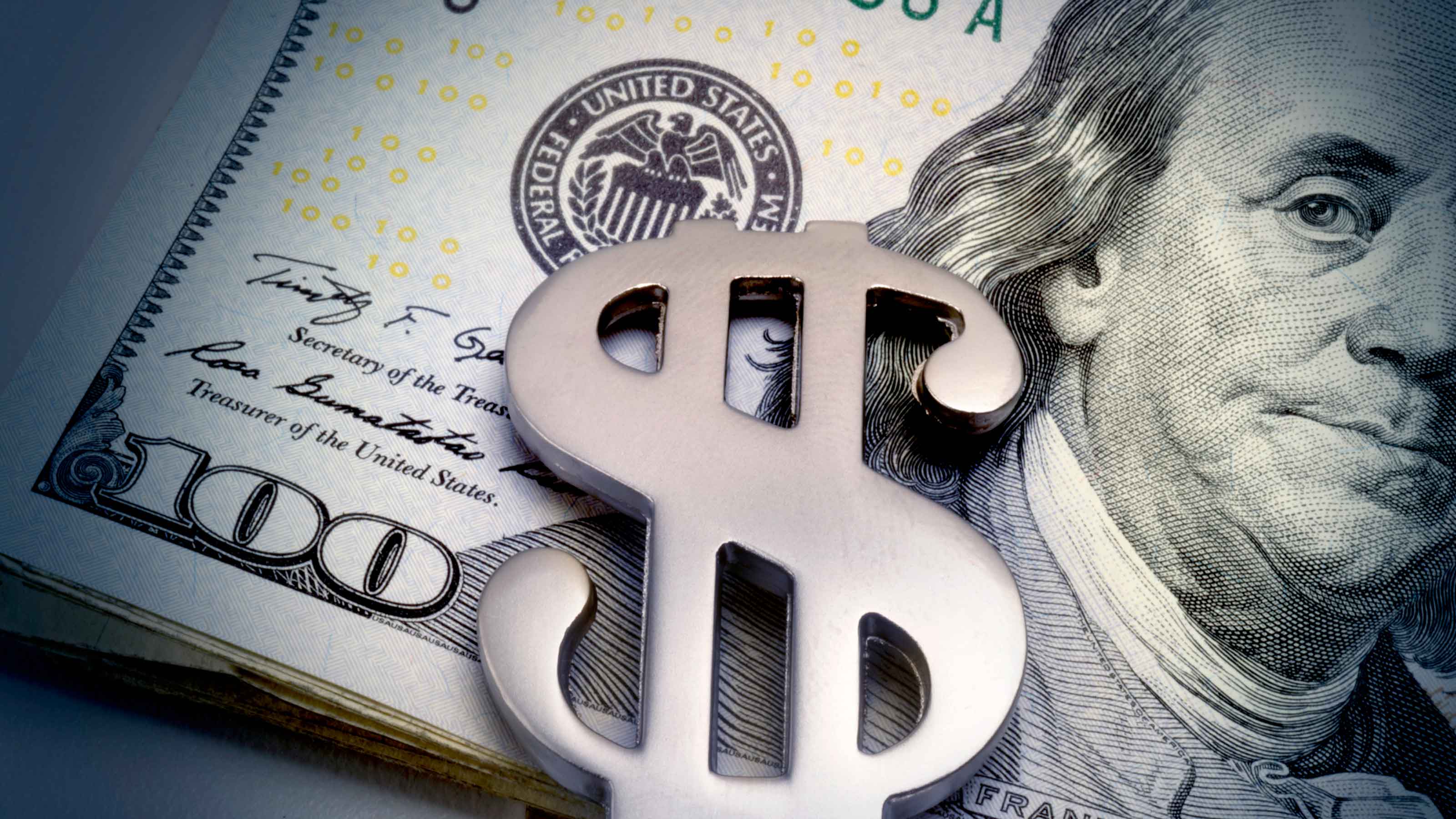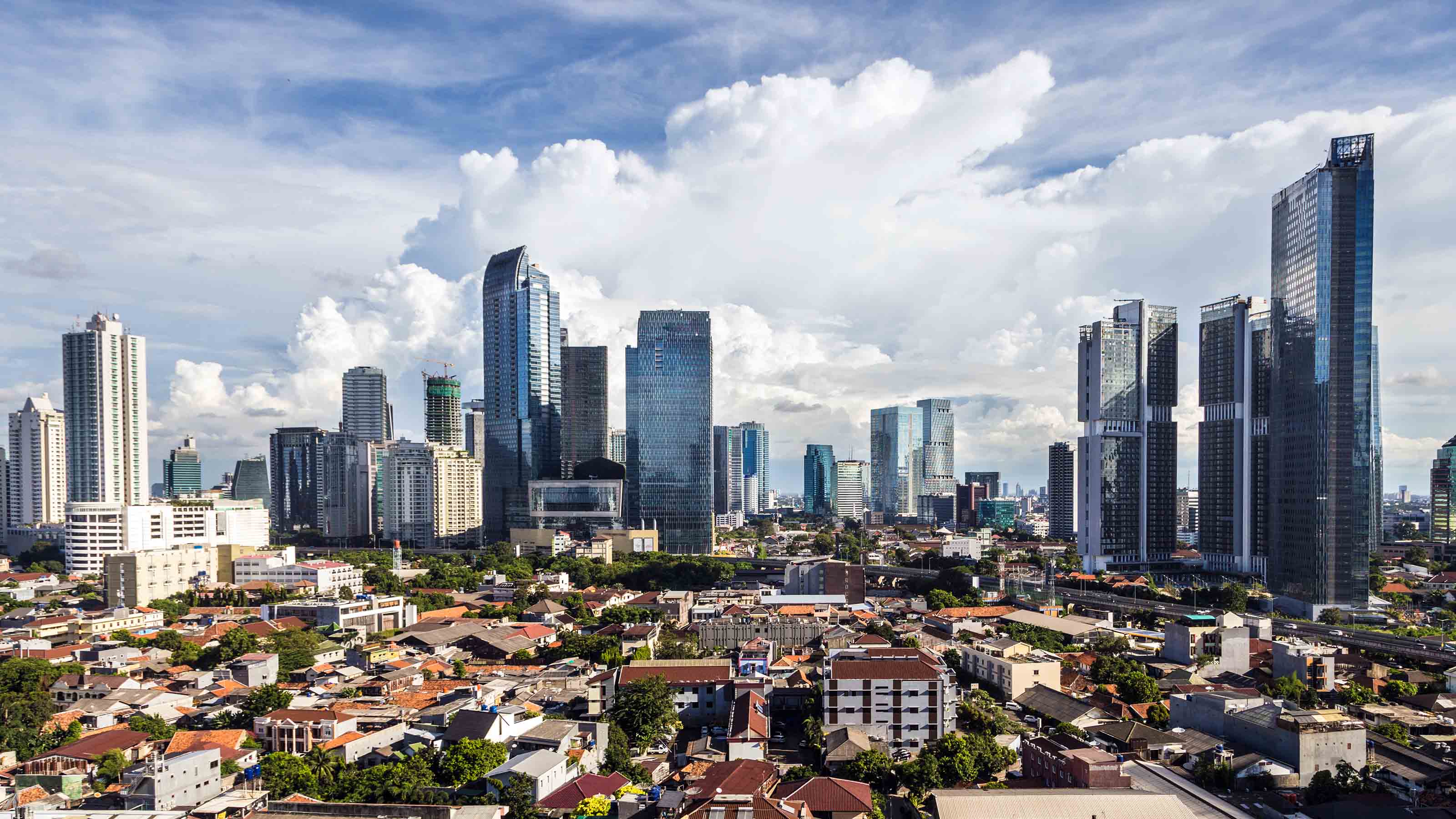Emerging Markets Grow Up
Emerging markets were such wretched performers for much of the 1990s that they earned the sobriquet submerging markets. But today, you bypass emerging markets at your peril. Plus, the best funds to own.

Profit and prosper with the best of Kiplinger's advice on investing, taxes, retirement, personal finance and much more. Delivered daily. Enter your email in the box and click Sign Me Up.
You are now subscribed
Your newsletter sign-up was successful
Want to add more newsletters?

Delivered daily
Kiplinger Today
Profit and prosper with the best of Kiplinger's advice on investing, taxes, retirement, personal finance and much more delivered daily. Smart money moves start here.

Sent five days a week
Kiplinger A Step Ahead
Get practical help to make better financial decisions in your everyday life, from spending to savings on top deals.

Delivered daily
Kiplinger Closing Bell
Get today's biggest financial and investing headlines delivered to your inbox every day the U.S. stock market is open.

Sent twice a week
Kiplinger Adviser Intel
Financial pros across the country share best practices and fresh tactics to preserve and grow your wealth.

Delivered weekly
Kiplinger Tax Tips
Trim your federal and state tax bills with practical tax-planning and tax-cutting strategies.

Sent twice a week
Kiplinger Retirement Tips
Your twice-a-week guide to planning and enjoying a financially secure and richly rewarding retirement

Sent bimonthly.
Kiplinger Adviser Angle
Insights for advisers, wealth managers and other financial professionals.

Sent twice a week
Kiplinger Investing Weekly
Your twice-a-week roundup of promising stocks, funds, companies and industries you should consider, ones you should avoid, and why.

Sent weekly for six weeks
Kiplinger Invest for Retirement
Your step-by-step six-part series on how to invest for retirement, from devising a successful strategy to exactly which investments to choose.
When emerging markets plunged 26% from mid May to early June, Wall Street strategists were quick to pen obituaries. Emerging markets were simply too risky, they wrote. Sensible investors should stick to multinational plays on developing nations -- safe stocks such as Altria, Coca-Cola and Yum Brands. But the death notices turned out to be dead wrong. Emerging markets have already bounced back. The MSCI Emerging Markets Index has gained 19% since its June 9 low.
The performance in recent years is breathtaking. The average emerging markets fund has returned 12% so far this year -- nevermind the selloff. Over the past 12 months, the average fund has earned 33%. The three-year annualized return for the average fund is 32%; over five years, the average return is an annualized 24%. How good is that? At 24%, your money doubles every three years.
Emerging markets aren't going to be on fire every year. But long-term investors -- those who can stave off panic during the periodic nosedives these markets remain prone to -- would be foolish to overlook the tremendous potential in developing nations.
From just $107.88 $24.99 for Kiplinger Personal Finance
Become a smarter, better informed investor. Subscribe from just $107.88 $24.99, plus get up to 4 Special Issues

Sign up for Kiplinger’s Free Newsletters
Profit and prosper with the best of expert advice on investing, taxes, retirement, personal finance and more - straight to your e-mail.
Profit and prosper with the best of expert advice - straight to your e-mail.
Some of these young economies will grow into goliaths in the coming decades. You don't need me to tell you that. Just look at the "made in" label on your computer or toaster, not to mention your shirt. Remember who answered the phone the last time you dialed a so-called help center.
The demographics and wage patterns of developing nations are the mirror image of those in Japan, developed Europe and, to a lesser extent, the U.S. While our populations age, their birth rates soar. While our pay rates stagnate, theirs surge.
This is one corner of the market where it pays to have a short memory. The MSCI Emerging Markets index returned 75% in 1993 -- luring hapless investors, including yours truly. The index shed nearly 30% over the next two years. Indeed, if you missed 1993, it didn't pay to be in emerging markets the remainder of the decade -- which as a buy-and-hold investor, I'm embarrassed to say, I was.
But emerging markets have come a long way since 1998's "Asian contagion" knocked 40% off the MSCI index. "I see less risk in these countries," says Brad Aham, manager of SSGA Emerging Markets (SSEMX). Many run trade surpluses, and most float their currencies on the open market. While corporate governance in developing nations is still far from perfect, companies in those countries increasingly are being run with shareholders at least as afterthoughts.
In the near future, Aham expects, emerging markets will continue to rise and fall with the U.S. economy. Should the Fed keep hiking rates or the U.S. fall into recession, emerging markets will get clobbered. It's the old saw about the U.S. sneezing and Asia catching a cold.
But little by little, emerging markets are growing up. Already Korea and Taiwan (and, for that matter, Japan) export more to China than to the U.S. And as GDP rises in emerging markets, companies are springing up to serve local economies.
Growth rates are already stunning, and not just in India and China, with their near-double-digit annual growth rates. "In spite of the politics, decent growth is coming out of Latin America," Aham says. In fact, he adds, it's the politically least stable countries that typically possess the cheapest stocks, which often means the greatest amount of opportunity.
Relative to the MSCI index, Aham's fund overweights stocks from Brazil, Russia and Turkey. The economic policies of Brazil's leftwing government have turned out to be surprisingly mainstream. Aham thinks Russia's Vladimir Putin will leave the non-energy sectors free from government takeovers. Turkey is reforming its economy to gain entry into the European Union.
So, here's the deal: Expect violent moves in emerging markets. The next time the stocks collapse, throw money at them. But I wouldn't invest more than 10% of my stock money in this risky sector. The argument that multinationals will profit enormously from the growth of emerging markets is correct. Smart investors will put money into U.S.-based multinationals and emerging markets.
Best funds
The best funds in these wild and woolly markets have a decidedly conservative bent. My favorite, the SSGA fund, shuns big bets on companies or countries. Aham and his team steer a cautious course, employing a largely computer-drive approach to choose cheap shares of companies with good growth potential. But they also make some top-down judgments to help them decide whether to slightly overweight or underweight some countries. Over the past ten years, the fund has returned 10% annualized. That beat the index by an average of five percentage points per year.
Using a fundamental but equally cautious approach, T. Rowe Price Emerging Markets (PRMSX) has achieved roughly the same results. Both funds boast relatively low expense ratios -- 1.30% for SSGA and 1.27% for Price. You won't go wrong with either. If ETFs are more to your taste, Vanguard Emerging Markets Vipers (VWO) is the top choice, especially now that it has broadened its index to one that includes more countries. It charges just 0.30% annually. But I'd rather own an actively managed fund.
Prefer individual stocks? Many emerging-market "blue chips" trade in the U.S. through American depositary receipts. Aham recommends three: China Mobile (CHL), China's largest cell phone company, which trades at 14 times next year's estimated earnings; Petrobras (PBR), the Brazilian oil and gas giant, which trades at just six times 2007 estimated earnings; and Telekom Indonesia (TLK), Indonesia's biggest telecom company, trading at 12 times estimates.
Steven Goldberg is a freelance writer and former senior associate editor of Kiplinger's Personal Finance magazine.
Profit and prosper with the best of Kiplinger's advice on investing, taxes, retirement, personal finance and much more. Delivered daily. Enter your email in the box and click Sign Me Up.

-
 5 Vince Lombardi Quotes Retirees Should Live By
5 Vince Lombardi Quotes Retirees Should Live ByThe iconic football coach's philosophy can help retirees win at the game of life.
-
 The $200,000 Olympic 'Pension' is a Retirement Game-Changer for Team USA
The $200,000 Olympic 'Pension' is a Retirement Game-Changer for Team USAThe donation by financier Ross Stevens is meant to be a "retirement program" for Team USA Olympic and Paralympic athletes.
-
 10 Cheapest Places to Live in Colorado
10 Cheapest Places to Live in ColoradoProperty Tax Looking for a cozy cabin near the slopes? These Colorado counties combine reasonable house prices with the state's lowest property tax bills.
-
 White House Probes Tracking Tech That Monitors Workers’ Productivity: Kiplinger Economic Forecasts
White House Probes Tracking Tech That Monitors Workers’ Productivity: Kiplinger Economic ForecastsEconomic Forecasts White House probes tracking tech that monitors workers’ productivity: Kiplinger Economic Forecasts
-
 Investing in Emerging Markets Still Holds Promise
Investing in Emerging Markets Still Holds PromiseEmerging markets have been hit hard in recent years, but investors should consider their long runway for potential growth.
-
 Stocks: Winners and Losers from the Strong Dollar
Stocks: Winners and Losers from the Strong DollarForeign Stocks & Emerging Markets The greenback’s rise may hurt companies with a global footprint, but benefit those that depend on imports.
-
 5 Exciting Emerging Markets Funds to Buy
5 Exciting Emerging Markets Funds to BuyForeign Stocks & Emerging Markets Emerging markets funds haven't been immune to global inflationary pressures. But now might be the time to strike on these high-risk, high-reward products.
-
 African Stocks: Investing in the Last Great Emerging Market
African Stocks: Investing in the Last Great Emerging MarketForeign Stocks & Emerging Markets A massive middle class and rapid technology-enabled development could turn African stocks into growth darlings over the next two decades.
-
 ESG Gives Russia the Cold Shoulder, Too
ESG Gives Russia the Cold Shoulder, TooESG MSCI jumped on the Russia dogpile this week, reducing the country's ESG government rating to the lowest possible level.
-
 India Is on a Tear
India Is on a TearForeign Stocks & Emerging Markets Massive modernization presents opportunities for investors.
-
 Wasatch Emerging Markets Small Cap Goes Its Own Way
Wasatch Emerging Markets Small Cap Goes Its Own WayForeign Stocks & Emerging Markets This emerging-markets stock fund isn't afraid to stray from the pack.